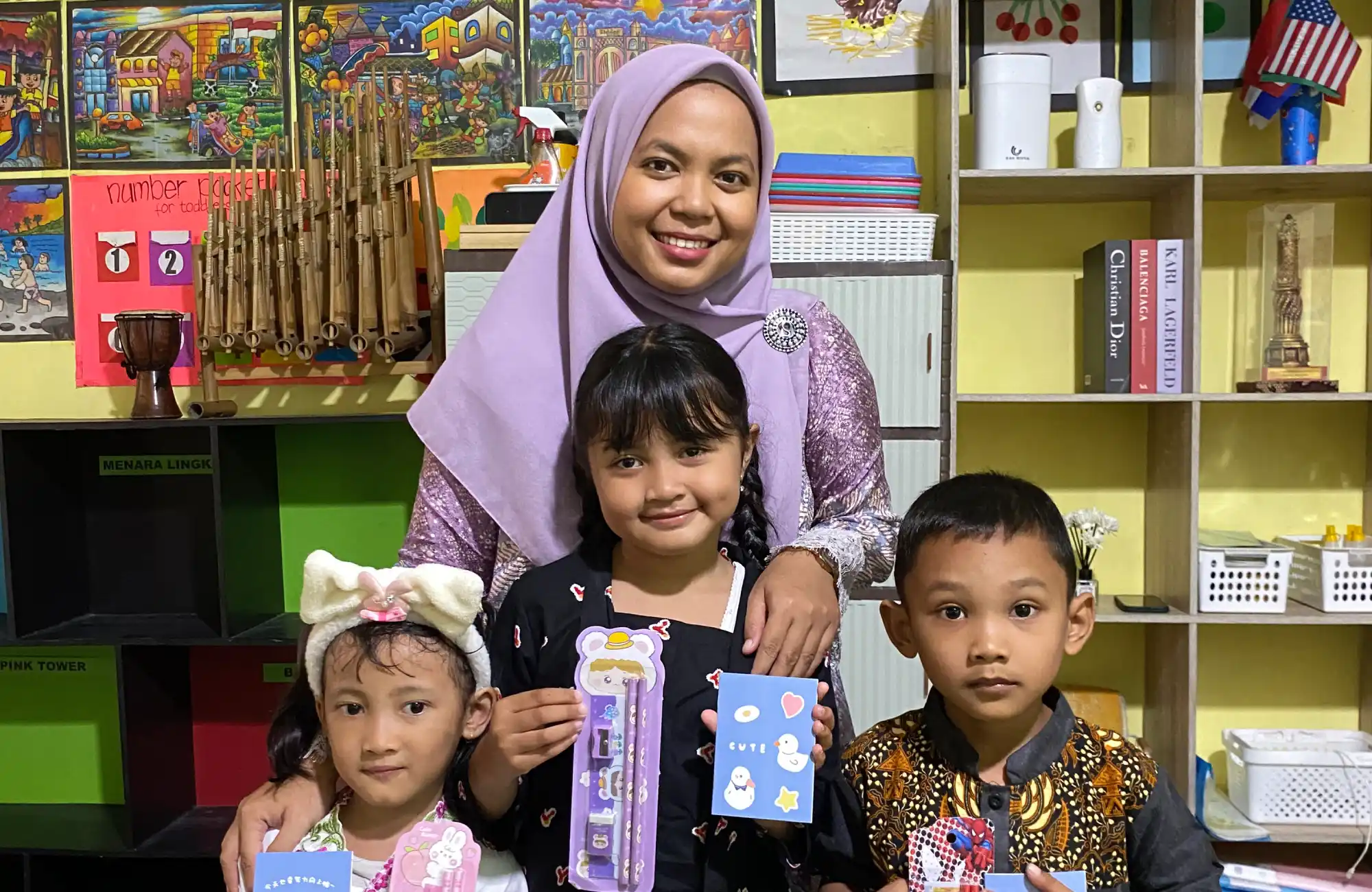AULIA Preschool: Playgroup or Kindergarten? What's the Difference?
Understanding the differences between early childhood education categories and their implications for primary education levels.
Saturday, 7 June 2025 | Admin AULIA Preschool
As July approaches each year, parents usually begin planning the best education for their children. One of the most important stages, yet often overlooked, is Early Childhood Education (PAUD). In fact, this phase is crucial as the foundation for preparing children to enter primary education.
During this phase, children not only learn academic skills but also develop social, emotional, and motor abilities. PAUD is an important moment to instill fundamental values and shape a child’s character before entering the more demanding environment of formal schooling.
With age-appropriate approaches, PAUD helps children understand routines, learn independently, and build relationships and communication with their peers. Through enjoyable activities such as playing, singing, and exploring, it is hoped that every child gains natural and memorable learning experiences.
It is important to note that during this phase, parents need to be more careful in choosing the right early childhood education services, tailored to each child’s needs and readiness.
📋 What is Early Childhood Education (PAUD) and Its Categories?
It is important to understand that PAUD (Early Childhood Education) is not the name of a specific school, but rather a phase of education for children aged 0 to 6 years (similar to how Elementary School covers ages 6–12, followed by Middle and High School). This phase can be delivered through three main pathways: formal, non-formal, and informal. Each pathway offers different types of educational services, but all aim to provide educational stimulation to support optimal growth and development of the child.
Based on Law No. 20 of 2003 Article 28, Paragraph (2), it is stated:
"Early childhood education can be delivered through formal, non-formal, and/or informal education pathways."
Based on the regulation, early childhood education (PAUD) is divided into three categories:
- Formal Education
Early childhood education under the formal education pathway takes the form of Kindergarten (TK), Raudatul Athfal (RA), or other equivalent forms. - Nonformal Education
Early childhood education under the nonformal education pathway takes the form of Playgroups (KB), Childcare Centers (TPA), or other equivalent forms. - Informal Education
Early childhood education under the informal education pathway takes the form of family education or education provided by the surrounding community.
❓ Is PAUD Mandatory Before Entering Elementary School?
This question often arises among parents preparing their children to enter elementary school. To answer it, let’s refer directly to the applicable legislation, namely the Republic of Indonesia Law Number 20 of 2003 concerning the National Education System:
- Article 28 Paragraph (1): “Early childhood education is conducted prior to the basic education level.”
- Explanation of Article 28 Paragraph (1): “…and is not a prerequisite for attending basic education.”
According to the current regulations, early childhood education (PAUD) is not a mandatory requirement to enter elementary school. However, participating in PAUD programs, especially in the formal and non-formal categories, is highly recommended as it stimulates a child's growth and development. During early childhood, children are in a critical phase where the right stimulation greatly influences their readiness to learn and interact. Through PAUD, children learn about rules, adapt to new environments, and develop cognitive, social, and emotional skills that serve as essential foundations when entering the more structured and challenging world of elementary school.
✅ Requirements for Entering Elementary School
Many parents ask about the official requirements for their children to enter Elementary School (SD). Based on Permendikbud No. 51 of 2018 Article 7, the applicable age requirements are as follows:
- Children who are 7 years old must be accepted into SD.
- Children who are 6 years old by July 1 of the current year can be accepted.
- Children who are 5 years and 6 months old by July 1 may still be accepted, provided they receive a recommendation from a professional psychologist. If a psychologist is unavailable, a recommendation from the school’s teaching staff can be used instead.
Additionally, the SD Admission Regulations (PPDB) do not require a diploma or certificate of completion from the PAUD level. This differs from the requirements for SMP and SMA levels, which mandate graduation from the previous education stage.
Therefore, children can directly enroll in elementary school as long as they meet the required age criteria, without needing to complete education at kindergarten, RA, playgroup, or equivalent levels first.





🏫 AULIA Preschool - Nonformal Early Childhood Education
AULIA Preschool is an early childhood education institution categorized as nonformal PAUD and is officially registered under the legal entity KB AULIA. Established based on School Establishment Decree 001/KB/V/2016 and nationally registered with NPSN: 69985951. AULIA Preschool provides a warm, joyful, and meaningful environment for play and learning, dedicated to being a safe and happy place for children to grow.
At AULIA, we believe the best education begins with a strong bond between children, parents, and teachers. We are committed to designing every program to encourage holistic growth—covering cognitive, emotional, social, and spiritual aspects. Our teaching team consists of dedicated professional educators, always ready to create fun and meaningful learning experiences every day.
💡 Conclusion
Choosing between Playgroup (Kelompok Bermain) and Kindergarten (Taman Kanak-Kanak) is not just about age, but more about understanding each child’s needs and readiness. There is no one educational path that is better than the other—because every child grows in their own way and time.
AULIA Preschool is here to be the best partner for parents in welcoming and maximizing your child’s golden years of growth. With a warm, loving, and responsible approach, we are ready to accompany your child’s early journey toward a bright future.
This article was written by RupaKarsa AULIA




